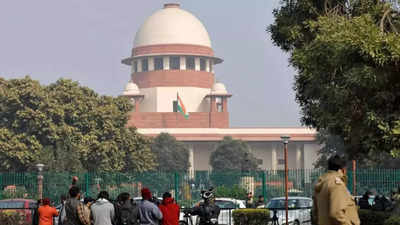- News
- Technology News
- Tech News
- Watching child porn on your laptop, PC or smartphone is now a punishable offence; 3-7 years jail and fine
Trending
Watching child porn on your laptop, PC or smartphone is now a punishable offence; 3-7 years jail and fine
The Supreme Court of India has ruled that merely possessing child pornographic material constitutes a criminal offence under the doctrine of inchoate crimes. This ruling emphasizes legal culpability for preparatory actions. The Protection of Children from Sexual Offences (POCSO) Act specifies various penalties for offences related to child pornography, including fines and imprisonment depending on the nature and intent.

Supreme Court
In a landmark judgement, the court emphasised the importance of the doctrine of inchoate crimes in criminal jurisprudence.
This doctrine addresses the legal culpability of individuals who engage in preparatory actions that precede the commission of a substantive crime.
The court clarified that the intention behind possessing child pornographic material is punishable, regardless of whether there is an actual transmission of the content. The mere act of storing or possessing such material with a specific intention is considered a crime.
What the SC bench's 200-page judgement said
"Inchoate crimes are defined as criminal acts that are committed in preparation for a further offence. The term 'inchoate' itself means 'undeveloped' or 'incomplete'," a bench of Chief Justice D Y Chandrachud and Justice JB Pardiwala said.
"What is sought to be penalised under Section 15 of the POCSO is the storage or possession of any child pornographic material when done with a particular intention or purpose as stipulated in sub-section(s) (1), (2) or (3), as the case may be. Thus, the bare textual reading of the said provision makes it clear that it is the intention which is being punished and not the commission of any criminal act in the traditional sense. This in the criminal jurisprudence is known as an ‘inchoate crime' or ‘inchoate offence'," Justice Pardiwala, who penned the 200-page judgement, said.
The judgement also addressed the concept of "constructive possession," which means exercising control over contraband without physically possessing it. The court ruled that even if a person does not physically possess child pornographic material but has control over it, they can still be held liable under the law.
The Protection of Children from Sexual Offences (POCSO) Act provides various punishments for different offences related to child pornography. The act outlines penalties ranging from fines to imprisonment, depending on the nature of the offence.
What is the punishment
As a report news agency PTI writes, the section 15 of the POCSO Act provides different punishments of varying jail terms or fine or both:
* Section 15 (1), which deals with possession of child pornographic material, provides for a minimum fine of Rs 5,000 which may extend to Rs 10,000.
* Section 15 (2), which deals with possession of child pornographic material for dissemination, entails jail term of up to three years or fine or both.
* Section 15 (3), which deals with use of such materials for commercial gains, provides for three years to five years of jail term for first-time offenders or with fine or both.
* Repeat offenders can be awarded jail terms ranging from five years to seven years along with a fine.
End of Article
Latest Mobiles
FOLLOW US ON SOCIAL MEDIA











